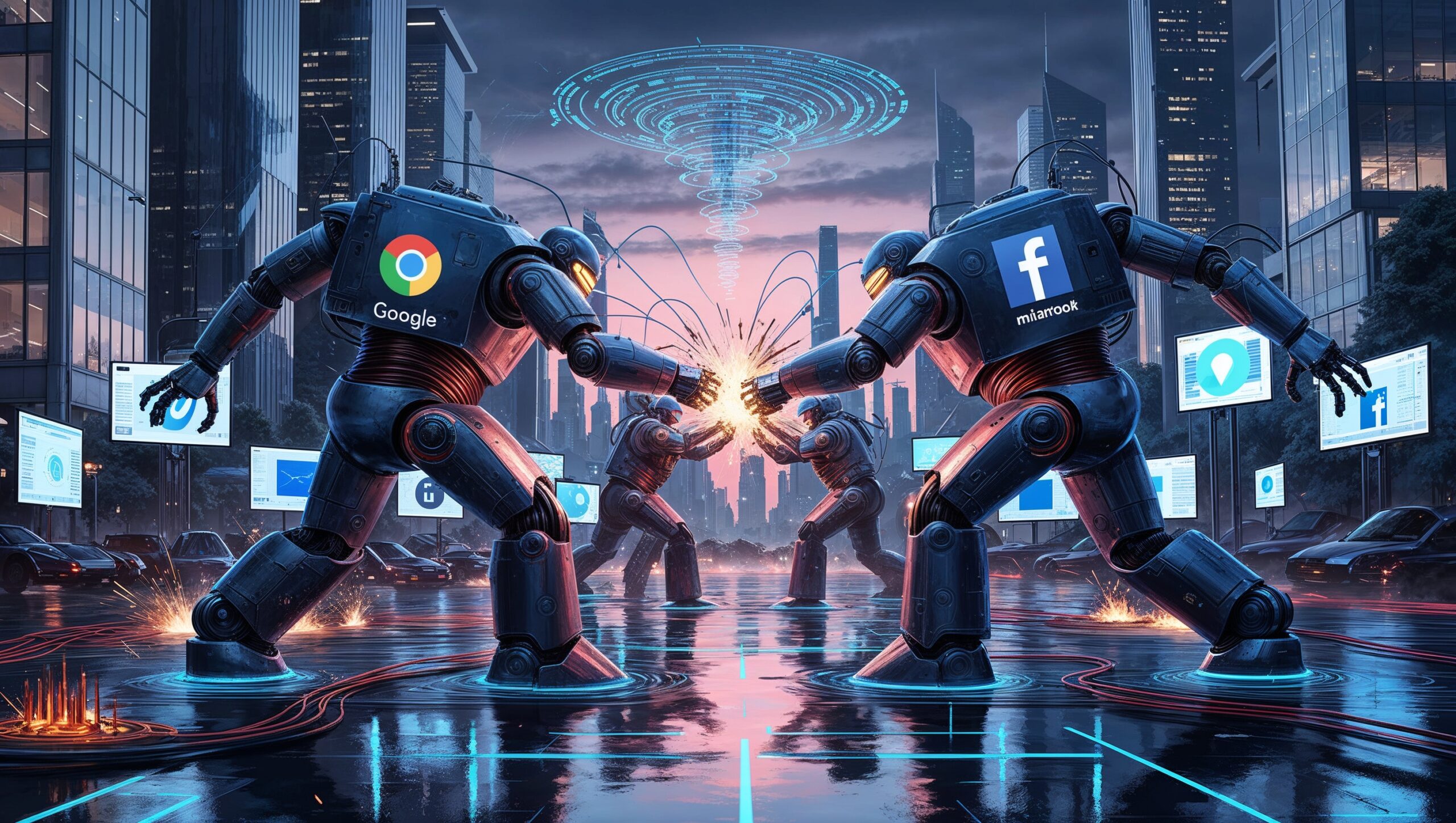A renewed race to develop the best artificial intelligence is clearly observable as major technology companies are battling for the leadership in cloud services and mainstream applications. This competition redefines the tech world and fosters high-growth and active development in multiple industries.
Microsoft has recently revealed the plans for the extension of its Artificial Intelligence features offered by the Azure cloud solution. They are new releases of features that are going to make it easier for businesses to develop and deploy new AI models. This move poses a straight threat to competitors such as Amazon Web Services and Google Cloud services. Microsoft wants to strengthen its position and become a major player in the market in providing businesses with AI solutions.
To counter this, Google has recently updated its Gemini AI model with the new functions of natural language understanding and generation. The company states that the latest update for Gemini opens up the possibility of performing more diverse tasks and delivers more subtle answers, allowing Google to edge out rivals in the consumer-level AI assistant marketplace. Consequently, this development will have implications for one or many of the Google products, including the Search and Productivity suite.
Apple, on a relatively low-profile when it comes to AI, has suggested that it would be integrating AI features into the iOS. Although few details are available at the moment, people knowledgeable about the matter have hinted that the company is developing on-device AI processing that should greatly improve users’ privacy and offer better and smarter AI capabilities. This approach is comprehensible within the framework of traditional Apple’s approach to the protection of users’ data.
In the social media space, Meta, formerly known as Facebook, has launched new AI-based Content Moderation tools throughout its platforms. These tools are as accurate as identifying and eradicating dangerous content such as deepfakes and fake posts. Specifically, the preliminary demonstration has achieved more than 95% accuracy in moderating content in real-time, responding to the same problem of fake news dissemination in social networks.
ChatGPT’s parent company, OpenAI, has initiated a collaboration with some primary universities to consider the moral questions of cutting-edge AI techniques. I believe that this cooperation’s goal is to create a code of conduct for AI, including the concerns in society with the further progression of AI technologies.
However, it has developed its new quantum processor that, according to the company, can increase certain AI tasks by an order of magnitude. It is still in its infancy, but when exploring future possibilities, this development might hold the key to a stream of entirely new quantum AI technologies.
In the car manufacturing industry, Tesla has rolled out new features in the FSD beta software, specifically, better algorithms for navigation and object recognition. The firm insists that this change takes the automobiles closer to true autonomous control, but there are still legal obstacles to overcome.
AI is also being used in more aspects of Amazon’s business, new machine learning techniques have been introduced to address the delivery and storage of packages. The firm says that through such advance, which utilizes artificial intelligence, the company has refuted delivery times and its costs.
In this context, people find themselves worrying more about employment when Artificial Intelligence technologies are adopted. The think tank ensures that, at least, the estimates within a decade indicate that AI will be able to perform up to 30% of today’s jobs and tasks across industries. This forecast has caused further discussions on retraining efforts regarding the workforce and changes in approaches in education toward an AI future.
Thanks to the advancement of AI, governments all over the globe are struggling to determine how to come up with sound policies and regulations on the new technology. Therefore, institutions such as the European Union have come up with a vision and policy for new legislation for decision and operation in transparency, accountability, and governance of artificial intelligence in sensitive sectors like healthcare, finance, and investment. This change might have an impact on the future regulation of AI all over the world.
This kind of cooperation only seems natural as technologies progress at a very fast pace, and AI is still advancing at this point. These partnerships are pushing the innovation frontier and assisting in the sorting out of issues with AI advancement and deployment. The next few months will also usher in more remarkable advancements to AI and stiff/continuous competition as industries attempt to optimize the full capabilities of artificial intelligence applications.
